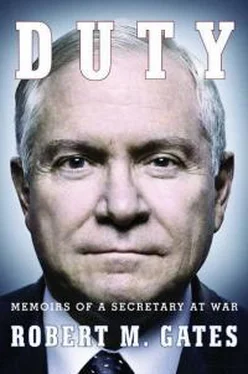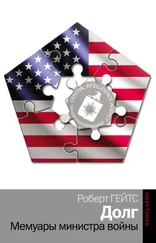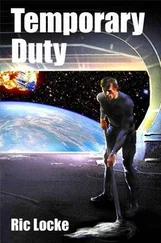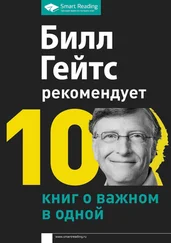After about an hour together, the president leaned forward and asked if I had any more questions. I said no. He then sort of smiled and said, “Cheney?” When I sort of smiled back, he went on to say, “He is a voice, an important voice, but only one voice.” I told him I had had a good relationship with Cheney when he was secretary of defense and thought I could make the relationship work. The president then said he knew how much I loved Texas A&M but that the country needed me more. He asked me if I would be willing to take on the secretary’s job. I said yes.
He had been very candid with me about many things, including his vice president, and he encouraged comparable candor on my part. I left confident that if I became secretary, he would expect and want me to tell him exactly what I thought, and I knew I would have no trouble doing that.
I was in a daze on the drive back to the university. For two weeks, becoming secretary of defense had been a possibility, one I continued to half-hope would not become a reality. After the interview, while the president had not told me to pack my bags, I knew what lay in front of me.
About half past five that afternoon, I received an e-mail from Bush 41: “How did it go?” I responded, “I may be off-base, but I think it went exceptionally well. I was certainly satisfied on all the issues I raised (including the ones you and I talked about).… Unless I miss my guess, this thing is going to go forward.” I went on, “Mr. President, I feel sad about possibly leaving A&M but I also feel pretty good about going back to help out at a critical time. You know, other than a handshake when he was governor of Texas, I really had never spent any time with your son. Today we spent over an hour together alone, and I liked what I saw. Maybe I can help him.” I asked him to be circumspect about how much he knew, and he quickly replied, “I do NOT leak! Lips sealed says this very happy, very proud friend of yours.”
Literally minutes later Bolten called to tell me the president had decided to move forward. A one p.m. press announcement was planned for Wednesday, November 8, followed by a televised three-thirty presidential appearance with Secretary Rumsfeld and me in the Oval Office.
Cheney, as he wrote in his memoir, had opposed the president’s decision to replace Rumsfeld, who was an old friend, colleague, and mentor. I suspected as much at the time and was relieved when Bolten passed along to me that Secretary of State Rice had been enthusiastic about my nomination and that the vice president had said I was “a good man.” As Bolten said, coming from Cheney, that was high praise.
I kept Becky informed of all this—I didn’t dare do otherwise—and expressed only one misgiving to her as that Sunday ended. The Bush administration by then was held in pretty low esteem across the nation. I told her, “I have to do this, but I just hope I can get out of this administration with my reputation intact.”
THE ANNOUNCEMENT
On Monday, the ponderous wheels of a major confirmation process began to move, still in secret. My first contact was with the White House counsel, Harriet Miers, to begin going through all the ethics questions associated with my membership on corporate boards of directors, my investments, and all the rest. The political side of confirmation began on Tuesday, when I was asked to provide lists of members of Congress I thought would be positive in their reactions, as well as former officials, journalists, and others who could be expected to comment favorably on my selection. I was asked to be at the White House at midmorning on the eighth.
I was flown to Washington in an unmarked Air Force Gulfstream jet that landed at Andrews Air Force Base, just outside Washington, where it taxied to a remote part of the airfield. I was picked up (again) by Joe Hagin.
A few minutes later I arrived at the White House and was shown to a small office in the West Wing basement, where I would begin making courtesy phone calls to congressional leaders, key members of Congress, and other notables in and out of Washington. I was introduced to David Broome, a young White House legislative assistant who would be my “handler” and shepherd me through the confirmation process. I had some experience on the Hill myself, of course, but David was a very smart, practical, and astute observer of Capitol Hill, as well as a U.S. Marine Corps reserve officer. I felt very comfortable with him.
I made a number of calls, and the reactions to my impending nomination were overwhelmingly positive. I learned that even the Republicans were very nervous about Iraq and eager for a change from the current approach—especially given that many of them attributed their party’s loss of control of Congress in the election the day before mostly to the public’s growing opposition to the war. Not knowing where I would come down on Iraq, they still welcomed me. The Democrats were even more enthusiastic, believing my appointment would somehow hasten the end of the war. If I had any doubt before the calls that nearly everyone in Washington believed I would have a one-item agenda as secretary, it was dispelled in those calls.
At about twelve-thirty p.m. Texas time, about a half hour into the president’s press conference announcing the change at Defense, an e-mail I had prepared was sent to some 65,000 students, faculty, and staff at Texas A&M with a personal message. The hardest part for me to write went as follows: “I must tell you that while I chose Texas A&M over returning to government almost two years ago, much has happened both here and around the world since then. I love Texas A&M deeply, but I love our country more and, like the many Aggies in uniform, I am obligated to do my duty. And so I must go. I hope you have some idea of how painful that is for me and how much I will miss you and this unique American institution.”
A couple of hours later, it was showtime. The president, Rumsfeld, and I met briefly in the president’s private dining room before Rumsfeld led the way into the Oval Office, followed by the president, then me. It had been nearly fourteen years since I had been in the Oval Office.
The president opened his remarks with a statement about the need to stay on the offensive in both Iraq and Afghanistan to protect the American people. He spoke of the role of the secretary of defense and then reviewed my career. He then made two comments that would frame my challenges as secretary: “He’ll provide the department with a fresh perspective and new ideas on how America can achieve our goals in Iraq” and “Bob understands how to lead large, complex institutions and transform them to meet new challenges.” He went on to generously praise Rumsfeld’s service and his achievements as secretary and to thank him for all he had done to make America safer. Rumsfeld stepped to the podium next and spoke about the security challenges facing the country but focused especially on thanking the president for his confidence and support, his colleagues in the Department of Defense, and above all our men and women in uniform for their service and sacrifice. I thought the statement showed a lot of class.
Then it was my turn. After thanking the president for his confidence and Don for his service, I said:
I entered public service forty years ago last August. President Bush will be the seventh President I have served. I had not anticipated returning to government service and have never enjoyed any position more than being president of Texas A&M University.
However, the United States is at war, in Iraq and Afghanistan. We’re fighting against terrorism worldwide. And we face other challenges to peace and our security. I believe the outcome of these conflicts will shape our world for decades to come. Because our long-term strategic interests and our national and homeland security are at risk, because so many of America’s sons and daughters in our armed forces are in harm’s way, I did not hesitate when the president asked me to return to duty.
Читать дальше












